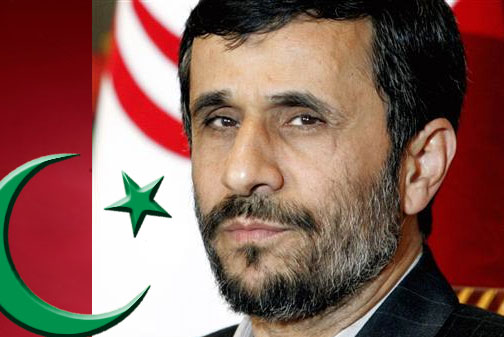 2145 GMT: Cyber-Watch. Radio Free Europe/Radio Liberty reports on how Iranian activists are welcoming the introduction of Google software, include the Chrome browser, Google Earth, and the photo-sharing service Picasa, into Iran.
2145 GMT: Cyber-Watch. Radio Free Europe/Radio Liberty reports on how Iranian activists are welcoming the introduction of Google software, include the Chrome browser, Google Earth, and the photo-sharing service Picasa, into Iran.
2140 GMT: Political Prisoner Watch. Rooz Online publishes the English text of the appeal by 133 intellectuals and academics, such as Noam Chomsky, Cornel West, and Jurgen Habermas, for the freedom of Ebrahim Yazdi, the 80-year-old head of the Freedom Movement of Iran detained since last September.
2125 GMT: Leaving the Mayor at Home. Ayande News notes that Tehran has finished third out of five cities nominated for an international award in sustainable transport, awarded in Washington by a US-based non-government organisation. It mentions that Tehran Mayor Mohammad-Baqer Qalibaf was not at the ceremony.
It does not mention why he was absent, however. Qalibaf was denied an exit visa by the Foreign Ministry.
2105 GMT: Photo of Day. In Rasht during the visit of President Ahmadinejad this week, supplicants hand in their letters requesting help.

1655 GMT: Irony-Free Moment. Nice to see ILNA devoting coverage to protests against an illegimate government.
In Egypt. We should have added, "In Egypt".
1653 GMT: Nuclear Talks. An interesting ploy by Ali Akbar Soltaneh, Iran's envoy to the International Atomic Energy Agency, after the failure of the Istanbul talks. He suggests that Tehran could deal directly with Russia on a uranium swap from enrichment, cutting out other powers like the US.
1649 GMT: Economy Watch. Ali Saeedi, the Supreme Leader's representative to the Islamic Revolution Guards Corps, has a novel explanation for any quibbles about the economic situation. He says people exaggerate difficulties because they have gotten used to abundance and low prices.
Saeedi adds that "imperialists" do not accept the success of subsidy cuts.
1645 GMT: Political Prisoner Watch. Radio Zamaneh summarises the release from detention of reformist political Ali Shakouri Rad, held for more than a month.
0740 GMT: Campus Watch. The student journal, "Yare Dabestani", at Gorgan Agriculture University has been banned.
0735 GMT: Cartoon of the Day. Amidst a flurry of statements by former President Hashemi Rafsanjani, Peyke Iran assesses the approach of the "Shark" and its significance. His remark here: "I'm still the same."

0730 GMT: Political Prisoner Watch. More than internationally-renowned 130 intellectuals and academics, including Noam Chomsky, Jurgen Habermas, Rashid Khalidi, and Cornell Well, have signed an open letter to the President and Iranian officials calling for the release of "political prisoners of conscience", including attorney Nasrin Sotoudeh, journalists Mohammad Reza Nourizad and Emad Bahavar, politicians Mostafa Tajzadeh and Feizollah Arabsorkhi, and student activist Bahareh Hedayat.
0630 GMT: After yesterday's opening bulletin that the regime had executed detainees Jafar Kazemi and Mohammed Ali Haj Aghaei, the news from Iran settled into that of normal politics.
Well, normal in the sense of an everyday conflict that may be escalating. There have been sparks of tension between Parliament and President for months, but Mahmoud Ahmadinejad gave them a blast of hot breath on Monday with his letter challenging the Majlis, the judiciary, and the Expediency Council (headed by former President Hashemi Rafsanjani) for not upholding the Constitution.
The translation of that dramatic intervention is that the President, having introduced the opening phase of subsidy cuts is ready for a fight --- with anyone and everyone --- over his long-delayed budget plans and control of institutions like the Central Bank. And his Parliamentary opponents are claiming they are ready as well: yesterday the Majlis gave Ahmadinejad's office a one-week deadline to file the proposed 2011/12 Budget.
The Associated Press has an English-language summary covering most of our Monday updates.